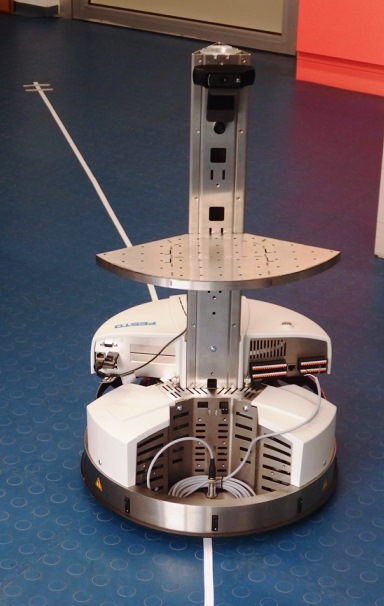Industrial Robots and Manufacturing Automation
The use of industrial robots is an essential basis for the modern manufacturing industry, both to increase productivity and to relieve people of heavy, tiring or dangerous work. When designing flexible, low-operator production sections, they are essential and take over e.g.
- parts manipulation (e.g. loading robot),
- are directly integrated into technological processes (e.g. paint spraying robots) and
- implement parts transport (e.g. driverless transport systems).
Furthermore, service robots open up a multitude of new fields of application, such as
- Cleaning robots (e.g. cleaning high-rise glass facades)
- Inspection robots (e.g. inspecting sewer pipes)
- Medical robots (e.g. support and operate disabled persons)
- Earth detection robots (e.g. digital mapping)
The diameter is 450 mm and the height is 290 mm.
It has a weight of 20 kg and can load 30 kg.
A special feature are the three independently driven all-side wheels (omnidirectional drives) that also allow turning on the spot.
Speeds of up to 10 km/h can be reached.
The robot can be operated e.g. via the graphic programming system Robotino View via wireless LAN.
Robot integrated manufacturing system
At this complex robot-integrated manufacturing system, students can work on interesting topics as a project or diploma thesis.


